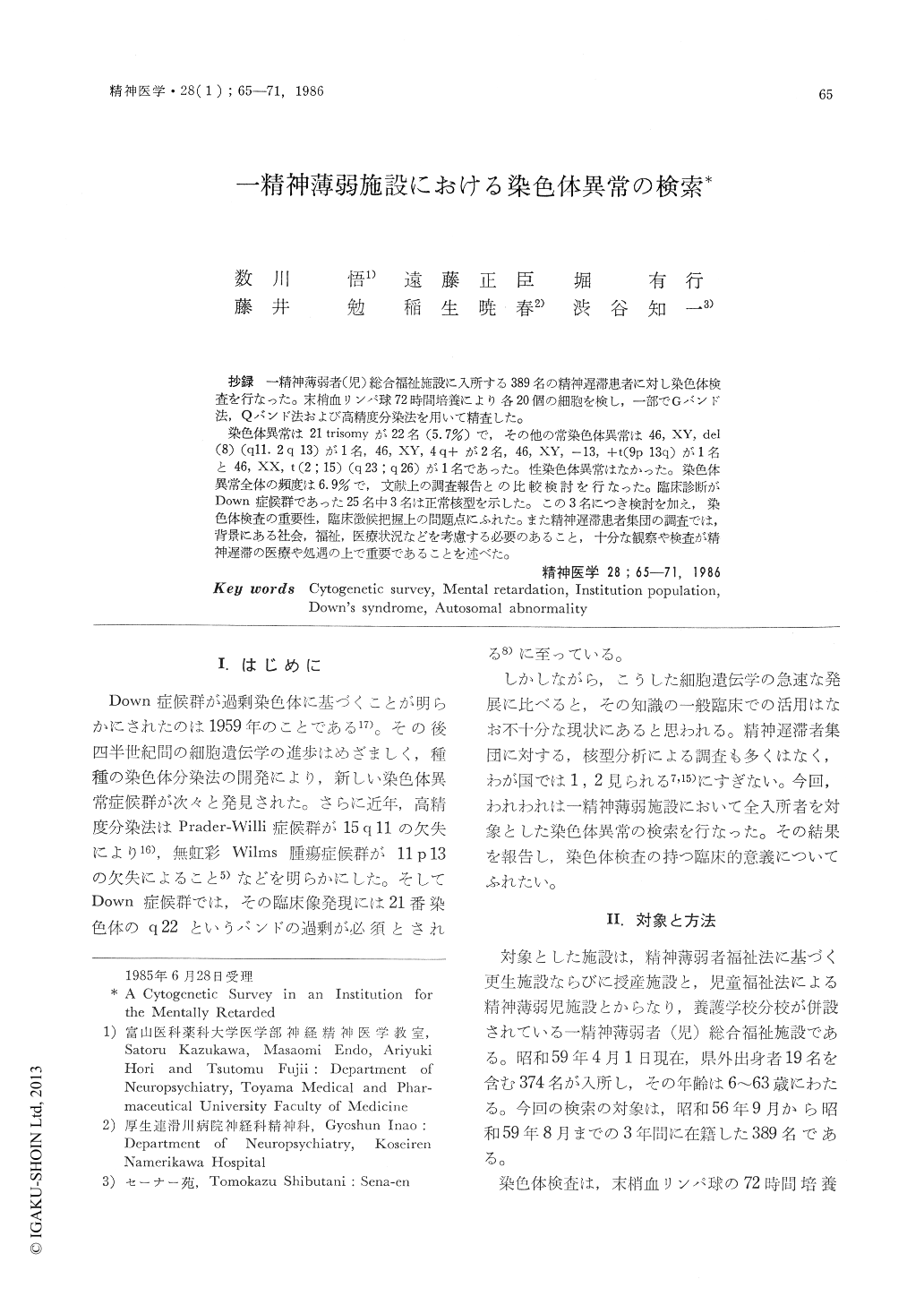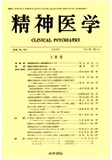Japanese
English
- 有料閲覧
- Abstract 文献概要
- 1ページ目 Look Inside
抄録 一精神薄弱者(児)総合福祉施設に入所する389名の精神遅滞患者に対し染色体検査を行なった。末梢血リンパ球72時間培養により各20個の細胞を検し,一部でGバンド法,Qバンド法および高精度分染法を用いて精査した。
染色体異常は21trisomyが22名(5.7%)で,その他の常染色体異常は46,XY,del(8)(q11. 2q 13)が1名,46,XY,4q+が2名,46,XY,-13,+t(9p 13q)が1名と46,XX,t(2;15)(q23;q26)が1名であった。性染色体異常はなかった。染色体異常全体の頻度は6.9%で,文献上の調査報告との比較検討を行なった。臨床診断がDown症候群であった25名中3名は正常核型を示した。この3名につき検討を加え,染色体検査の重要性,臨床徴候把握上の問題点にふれた。また精神遅滞患者集団の調査では,背景にある社会,福祉,医療状況などを考慮する必要のあること,十分な観察や検査が精神遅滞の医療や処遇の上で重要であることを述べた。
A cytogenetic survey of 389 patients in a Japanese institution for the mentally retarded is reported. Abnormal karyotypes were found in 27 (6.9%) patients, of whom 22 (5.7%) had clinical Down's syndrome with 21 trisomy, and 5 (1.3%) other autosomal abnormalities. No individual with sex chromosome abnormality was found. The clinical details of the patients with autosomal abnormalities other than 21 trisomy are presented.
The frequency of chromosome aberrations was lower compared with similar surveys, which leads to the conclusion that the population of the institution for the mentally retarded is determined by not only medical factors but also social conditions.

Copyright © 1986, Igaku-Shoin Ltd. All rights reserved.


